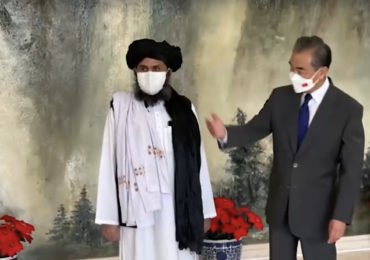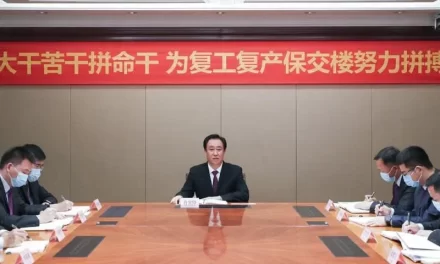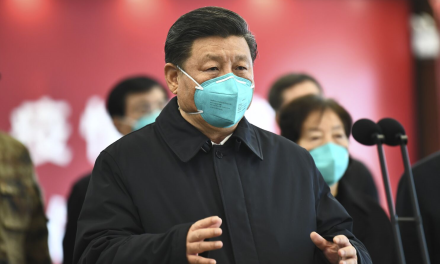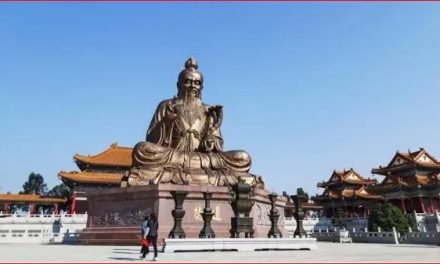BY JIANLI YANG, 09/15/21
Following the U.S. pullout from Afghanistan, many countries are watching the situation carefully, since a lot of diplomacy hinges on which side of the line each nation stands with respect to Afghan politics.
According to reports, in a late August telephone call between a top Chinese diplomat and U.S. Secretary of State Antony Blinken, China expressed its desire that the international community, including the United States, cooperate with and provide guidance to the Taliban.
In his phone conversation with Blinken, Chinese Foreign Minister Wang Yi suggested that the international community provide the Taliban with guidance so that Afghanistan’s new political system can support government operations and services. Wang reportedly stated that in order to achieve peaceful reconstruction, the Taliban will require economic assistance to maintain stability and stave off depreciation of the afghani, the currency of Afghanistan. According to Wang, the new Afghan regime likely will require U.S. aid to run domestic affairs in an effective and efficient manner.
China blames the U.S. for the situation in Afghanistan, claiming that Washington’s decision to withdraw its troops from the region paved the way for the insurgency. The hasty withdrawal of U.S. and NATO troops presents an opportunity for multiple terrorist groups to re-form and reunite in Afghanistan, Beijing contends.
U.S. officials argued that pulling American troops out of Afghanistan was necessary to free up American resources and assets, as well as the time and effort of U.S. military leaders. Instead of engaging in dialogue with the Taliban, the U.S. can now shift its attention to the Indo-Pacific political and security threat created by China. This shift has been made a foreign policy priority by the Biden administration.
Wang also asserted that, regarding bilateral ties between the U.S. and China, conversation is better than confrontation. Going forward, China will calculate and determine its strategies for engaging with the U.S. based on Washington’s attitude towards Beijing.
While most countries have either suspended, relocated or shut down their Afghan embassy operations, the Chinese embassy continues to operate as normal and the Taliban reportedly has promised safety to China. The Russian and Pakistan embassies, located in Kabul, also remain functional.
The East Turkestan Islamic Movement (ETIM), declared an international terrorist group by the United Nations Security Council, poses a direct threat to China’s national security and territorial integrity. After Washington’s decision to withdraw U.S. troops, China’s primary concern is that the situation in Afghanistan could allow the regrouping of Uyghur separatist groups based in Xinjiang and facilitate their operations from Afghanistan. But the Taliban has assured Beijing that it considers China a friend and ally, and seeks China’s continued support in building political and economic ties. Last week’s statement by the Taliban’s spokesman, Zabiullah Mujahid, should not be overlooked: “China is our most important partner and represents a fundamental and extraordinary opportunity for us.”
July 28, 2021 marked China’s first official diplomatic talks with the newly-formed Taliban government when Wang met in Tianjin with Abdul Ghani Baradar, chairman of the Afghan-Taliban Political Commission, along with the heads of the Taliban’s religious council and publicity committee. During these talks, the Chinese government reiterated its strategy that China will observe strict non-interference in Afghanistan’s internal affairs. According to Wang, with the Taliban’s rise to power, the people of Afghanistan now have an opportunity to achieve stability and growth. Wang has claimed the Taliban is an important military force and is crucial for rebuilding the country and achieving reconciliation and peace.
Yet, with the Taliban’s takeover of the former Afghan government, there have been terrifying reports from eyewitnesses of Taliban forces opening fire on protesters and engaging in targeted door-to-door raids.
Pakistani journalist Hamid Mir, who interviewed Osama bin Laden three times, stated in a Washington Post op-ed that, in his first interview with bin Laden in 1997, bin Laden “surprised me by suggesting an alliance of Afghanistan, Pakistan, Iran and China against the United States and India.”
It is clear that China sees the political, military and security void left by the United States’s exit from Afghanistan as an opportunity to realize what bin Laden envisioned 24 years ago. It is also evident that China, which does not want to single-handedly foot the bill for creating and maintaining peace in Afghanistan, needs the cooperation of the U.S. to deal with the Taliban because if things go south, the Taliban could become a loose cannon in China’s backyard.





















